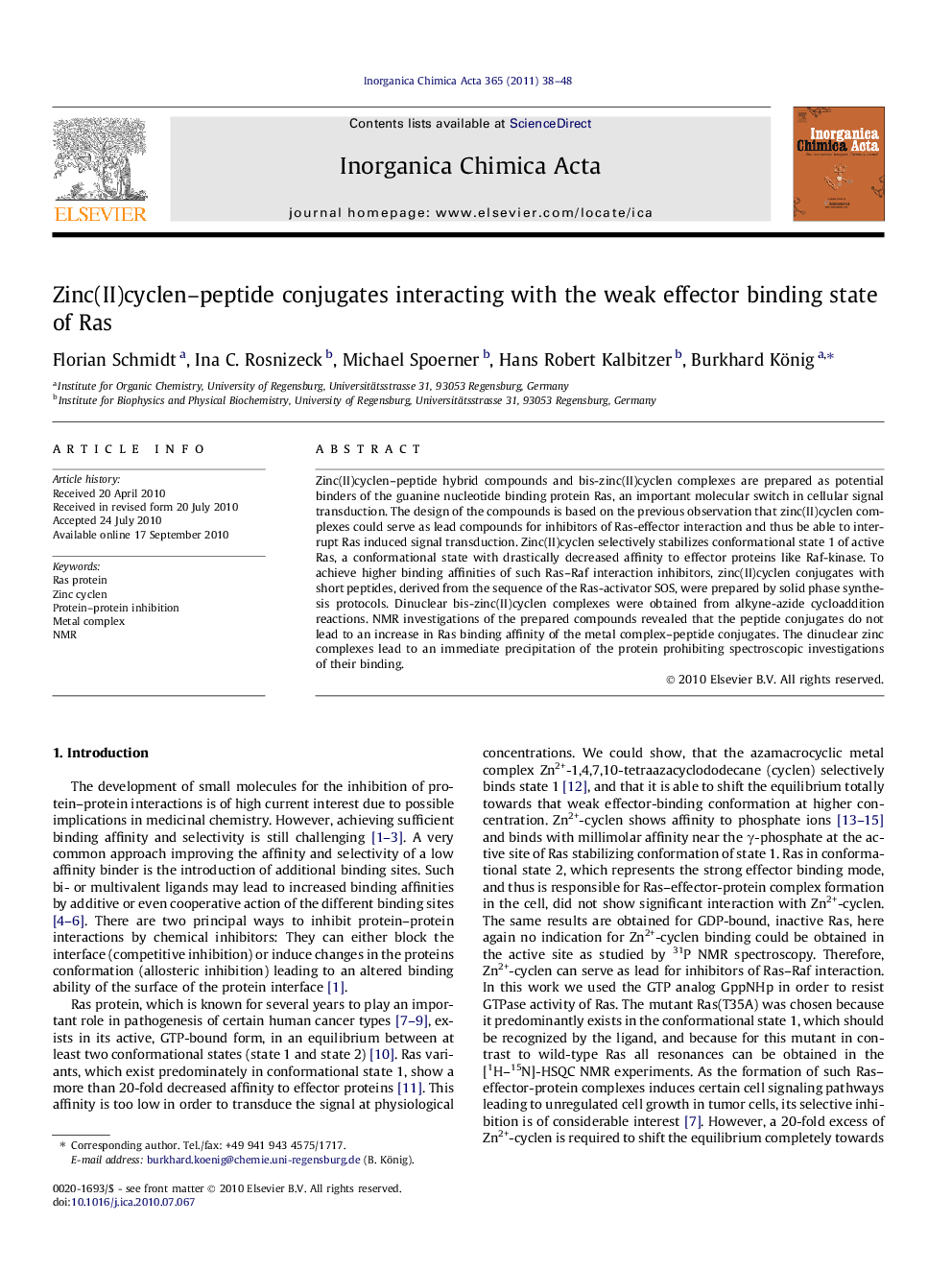| Article ID | Journal | Published Year | Pages | File Type |
|---|---|---|---|---|
| 1306521 | Inorganica Chimica Acta | 2011 | 11 Pages |
Zinc(II)cyclen–peptide hybrid compounds and bis-zinc(II)cyclen complexes are prepared as potential binders of the guanine nucleotide binding protein Ras, an important molecular switch in cellular signal transduction. The design of the compounds is based on the previous observation that zinc(II)cyclen complexes could serve as lead compounds for inhibitors of Ras-effector interaction and thus be able to interrupt Ras induced signal transduction. Zinc(II)cyclen selectively stabilizes conformational state 1 of active Ras, a conformational state with drastically decreased affinity to effector proteins like Raf-kinase. To achieve higher binding affinities of such Ras–Raf interaction inhibitors, zinc(II)cyclen conjugates with short peptides, derived from the sequence of the Ras-activator SOS, were prepared by solid phase synthesis protocols. Dinuclear bis-zinc(II)cyclen complexes were obtained from alkyne-azide cycloaddition reactions. NMR investigations of the prepared compounds revealed that the peptide conjugates do not lead to an increase in Ras binding affinity of the metal complex–peptide conjugates. The dinuclear zinc complexes lead to an immediate precipitation of the protein prohibiting spectroscopic investigations of their binding.
Graphical abstractZinc(II)cyclen based compounds were synthesized and investigated by NMR as potential inhibitors of Ras-effector interaction to interrupt Ras induced signal transduction. Representing an important molecular switch in cells whose dysfunction was found to be closely related with certain types of cancer, recapturing the control of mutated Ras is of high interest.Figure optionsDownload full-size imageDownload as PowerPoint slide
